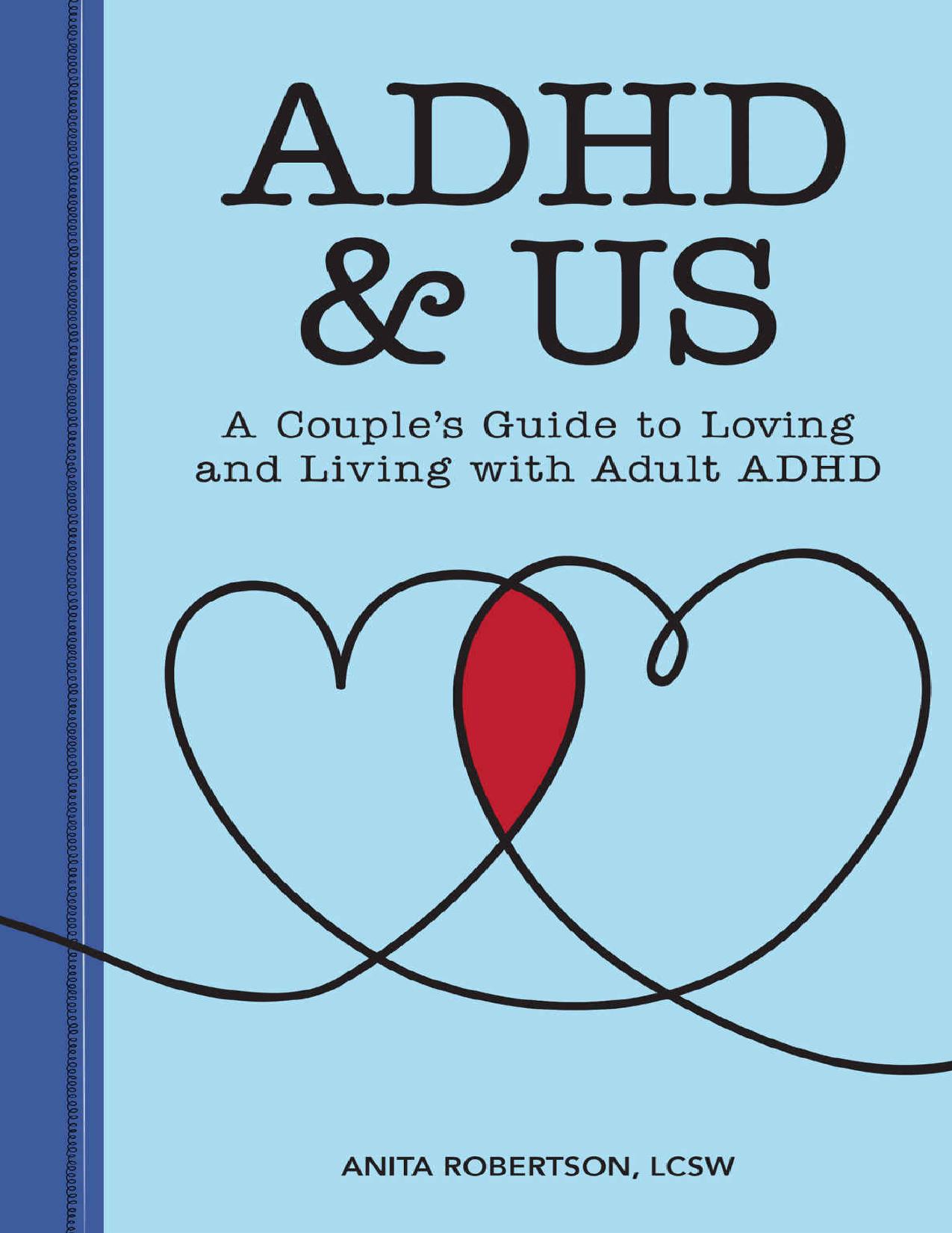ADHD & Us: A Couple's Guide to Loving and Living With Adult ADHD by Anita Robertson LCSW

Author:Anita Robertson LCSW [Robertson LCSW, Anita]
Language: eng
Format: azw3, epub, pdf
ISBN: 9781647397067
Publisher: Rockridge Press
Published: 2020-11-02T16:00:00+00:00
ADHD Relationships
Intense emotional reactions are part of all intimate relationships, both the good (big romantic gestures) and the bad (angry verbal attacks). However, with their weaker executive function skills like emotional regulation, working memory, and attention, adults with ADHD can experience more emotional outbursts than their neurotypical partner.
Someone with ADHD may have emotional outbursts when they feel disappointed or unnoticedâfor example, if theyâre looking forward to seeing their partner and plans are canceled or if they donât receive recognition when theyâre making an effort to please their partner. Because they often go above and beyond to please their partner and try to avoid disappointing them, a person with ADHD will try to keep their challenging or negative feelings about the relationship to themselves. Eventually, however, those negative feelings come outâusually in an emotional outburst that seems, to the other partner, to come from nowhere.
This emotional roller coaster can make it hard for the neurotypical partner to be supportive. When the ADHD âbrakesâ donât work, it can leave the non-ADHD partner feeling helpless and confused. They will struggle with how to provide feedback to avoid blow-out fights or intense responses. Over time, negative outbursts weigh heavily on a relationship, and even moments of joy and connection canât overcome hurtful words said in anger.
A pattern of angry outbursts is much less likely to occur if the partner with ADHD feels secure in the relationshipâespecially when the Five Relationship Pillars are present. When the pillars of positive acceptance and growth mindset are strong, it is easier for both partners to share their feelings. If the pillars of praise and acknowledgment are strong, the partner with ADHD gets the positive feedback and praise they need when they share their concerns or disappointments. This positive reaction motivates them to continue having honest conversations. When the relationship pillar of games is present, the couple has quality time to connect and see that their relationship can thrive after conflict.
STRATEGIES
Emotional regulation is a skill that can be learned and developed over time. Although the partner with ADHD may struggle more in this area, both partners can benefit from the following strategies. There are many great resources on how to develop or strengthen emotional regulation. Like any other skill, you need to practice it often to remember how to use it properly when intense emotions arise.
Calm Down Space
Download
ADHD & Us: A Couple's Guide to Loving and Living With Adult ADHD by Anita Robertson LCSW.epub
ADHD & Us: A Couple's Guide to Loving and Living With Adult ADHD by Anita Robertson LCSW.pdf
This site does not store any files on its server. We only index and link to content provided by other sites. Please contact the content providers to delete copyright contents if any and email us, we'll remove relevant links or contents immediately.
Inner Engineering: A Yogi's Guide to Joy by Sadhguru(6728)
The Power of Now: A Guide to Spiritual Enlightenment by Eckhart Tolle(5610)
Fear by Osho(4662)
Ikigai by Héctor García & Francesc Miralles(4125)
The Art of Happiness by The Dalai Lama(4063)
The Ultimate Bodybuilding Cookbook by Kendall Lou Schmidt(3886)
Yoga Therapy by Mark Stephens(3704)
The Little Book of Hygge by Meik Wiking(3647)
The Healing Self by Deepak Chopra(3476)
Why Buddhism is True by Robert Wright(3405)
The Hatha Yoga Pradipika (Translated) by Svatmarama(3234)
Being Aware of Being Aware by Rupert Spira(3231)
Shift into Freedom by Loch Kelly(3137)
Wild Words from Wild Women by Stephens Autumn(3095)
Work Clean by Dan Charnas(3055)
Happiness by Matthieu Ricard(2994)
More Language of Letting Go: 366 New Daily Meditations by Melody Beattie(2969)
Yoga Body & Mind Handbook by Jasmine Tarkeshi(2835)
Why I Am Not a Feminist by Jessa Crispin(2697)
